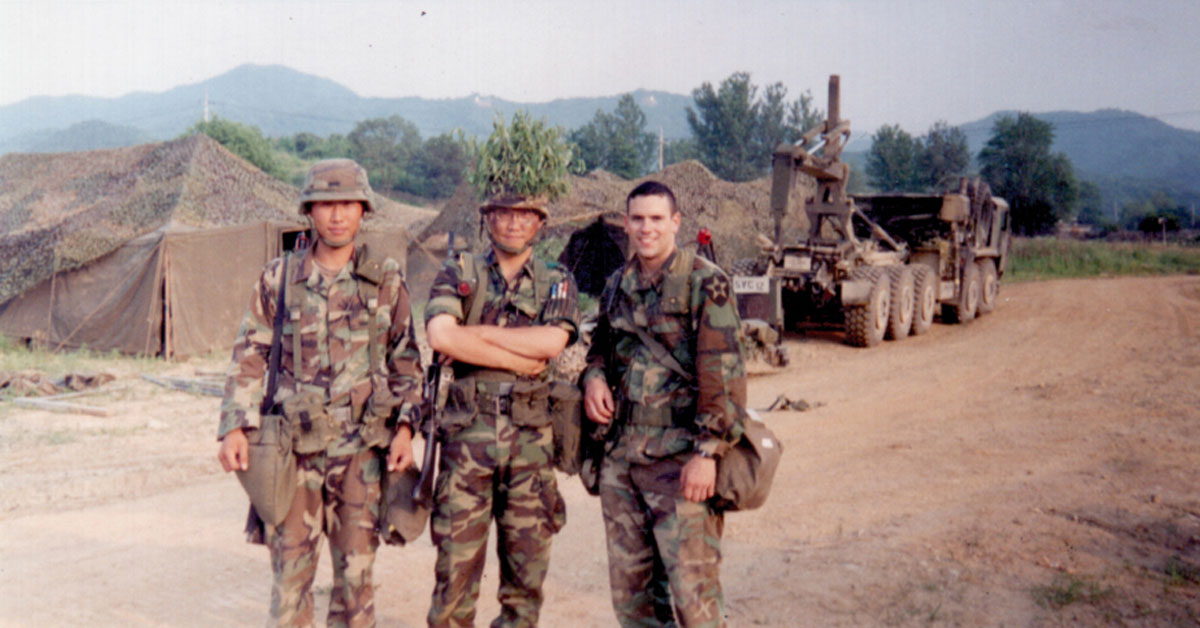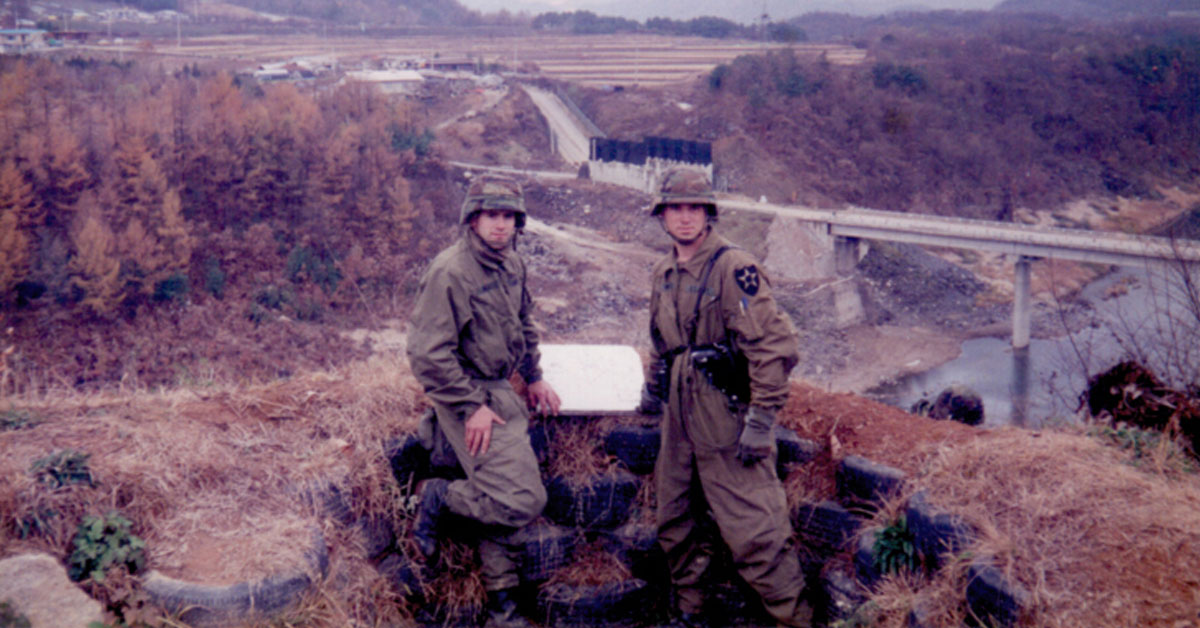I served five years as an Army Lieutenant and then Captain from 1995-2000. It was an awesome education – I refer to this experience as my real world MBA. I learned a lot (from some of the best senior officers and sergeants) that makes me a better person and leader today but wanted to share 3 this Veterans Day.

Training just south of the DMZ in S. Korea with 2 of my Korean soldiers /interpreters.
1 – Use Suspense Dates
If you don’t give a date and time of when something needs to be done it won’t get done – or at least not to your timing expectations. A suspense date makes it clear when something is due and allows your subordinates to know when the project need to be done. A technique I’ve used in business was to create the suspense date in my online calendar and then invite the person I gave the task to. This serves as a reminder to them as well as to me to follow up to see if the task was done.
2 – Rehearsals
Before doing something important (either by yourself but especially with a team) a rehearsal works out the kinks before going live. There were two types of rehearsals that come to mind. 1) a sand box rehearsal where we used a sandbox to show terrain features and used small mock ups to show enemy/ troop locations and talk thru with a pointer the plan of attack. 2) walk thru rehearsal where we figured out spacing of personnel, equipment and practiced movement to completing our mission. Maybe these don’t apply specifically to your line of work but I’ve used rehearsals plenty of times. One example is to coach sales and service people on what to say over the phone before they stumble with prospects or clients. Another is practicing your talk before you give a presentation.

Conducting a rehearsal with a tank commander for my artillery fire plan if the N. Korean Army came south through this valley.
3 – After Action Reviews
So you rehearsed the action and then executed it. After the mission/event/ action you will get together with your leaders or team and do a quick AAR. We all learn from our successes and mistakes and this is the honest open forum to do just that. Many times I remember going around the room and we each gave 3 good outcomes and 3 things that did not go to plan / need to be improved for the next iteration. This feedback loop is very powerful. One person keeps a record of the feedback (or use feedback forms) and then update your operating procedures. Next provide training on the areas that need improvement. Next time you have a similar activity/mission your performance will be significantly better.
I want to thank all the wonderful people I had the fortune of serving with as well as all those that continue to serve our country this Veterans Day.